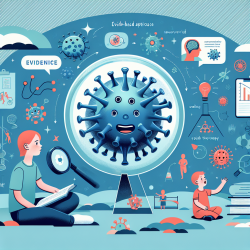As educational psychologists, our curiosity drives us to explore the depths of human development and learning. In the vast ocean of knowledge, one area that stands out with its profound impact on children's academic and personal growth is mental health. The nurturing of mental well-being in educational settings is not just a necessity; it's a catalyst for unlocking the boundless potential within each child. Through this exploration, we aim to delve into the significance of mental health support for kids in schools, spotlighting the transformative power of online therapy services like those provided by TinyEYE.
Our journey begins with understanding the landscape. Today's children face an unprecedented array of challenges, from social pressures and family dynamics to the fast-paced changes in technology and society. These challenges can significantly affect their mental health, manifesting in various ways that impede their ability to learn and thrive. As educational psychologists, our role in identifying, supporting, and nurturing these needs has never been more critical.
The question then arises: How can we best support the mental health of kids in educational settings? The answer lies in the integration of comprehensive mental health services within our schools. This approach is not just about addressing problems as they arise but about creating an environment that fosters emotional resilience, self-awareness, and positive coping strategies from an early age.
Online therapy services, such as those offered by TinyEYE, have emerged as a powerful tool in this endeavor. These services provide flexible, accessible, and effective mental health support, tailored to the unique needs of each child. By leveraging technology, we can overcome traditional barriers to access, ensuring that every child, regardless of their geographical location or socio-economic status, has the support they need to flourish.
But why focus on mental health in schools? The reasons are manifold. Firstly, schools are where children spend a significant portion of their day, making them an ideal setting for early intervention and support. Secondly, mental health issues, if left unaddressed, can severely impact a child's learning and development. By integrating mental health support into the educational framework, we not only address these issues early on but also promote a culture of understanding and empathy, laying the groundwork for a healthier, more supportive society.
The benefits of such an approach are clear. Research has shown that children who receive timely mental health support demonstrate improved academic performance, better social skills, and higher self-esteem. They are also better equipped to navigate the challenges of life, both within and outside the school environment. This is the power of early intervention and support – it not only addresses immediate needs but also builds a foundation for lifelong resilience and well-being.
Yet, the path to integrating mental health support in schools is not without its challenges. Stigma, resource constraints, and a lack of awareness can all act as barriers to implementation. This is where the role of educational psychologists becomes paramount. By advocating for mental health support, conducting research, and collaborating with organizations like TinyEYE, we can overcome these hurdles and create a more inclusive, supportive educational landscape.
The next step is clear. As educational psychologists, we must continue to expand our knowledge, explore innovative solutions, and advocate for the mental health needs of children in schools. This includes partnering with organizations that provide online therapy services, engaging in continuous professional development, and working closely with educators, parents, and communities to promote a holistic approach to child development.
In conclusion, the journey towards integrating mental health support in schools is both a challenge and an opportunity. It requires curiosity, dedication, and a collaborative effort among all stakeholders. But the rewards – in terms of children's academic success, personal growth, and overall well-being – are immeasurable. As we move forward, let us remain committed to unlocking the potential of every child, ensuring that their mental health needs are not just recognized but actively supported. Together, we can make a difference.










